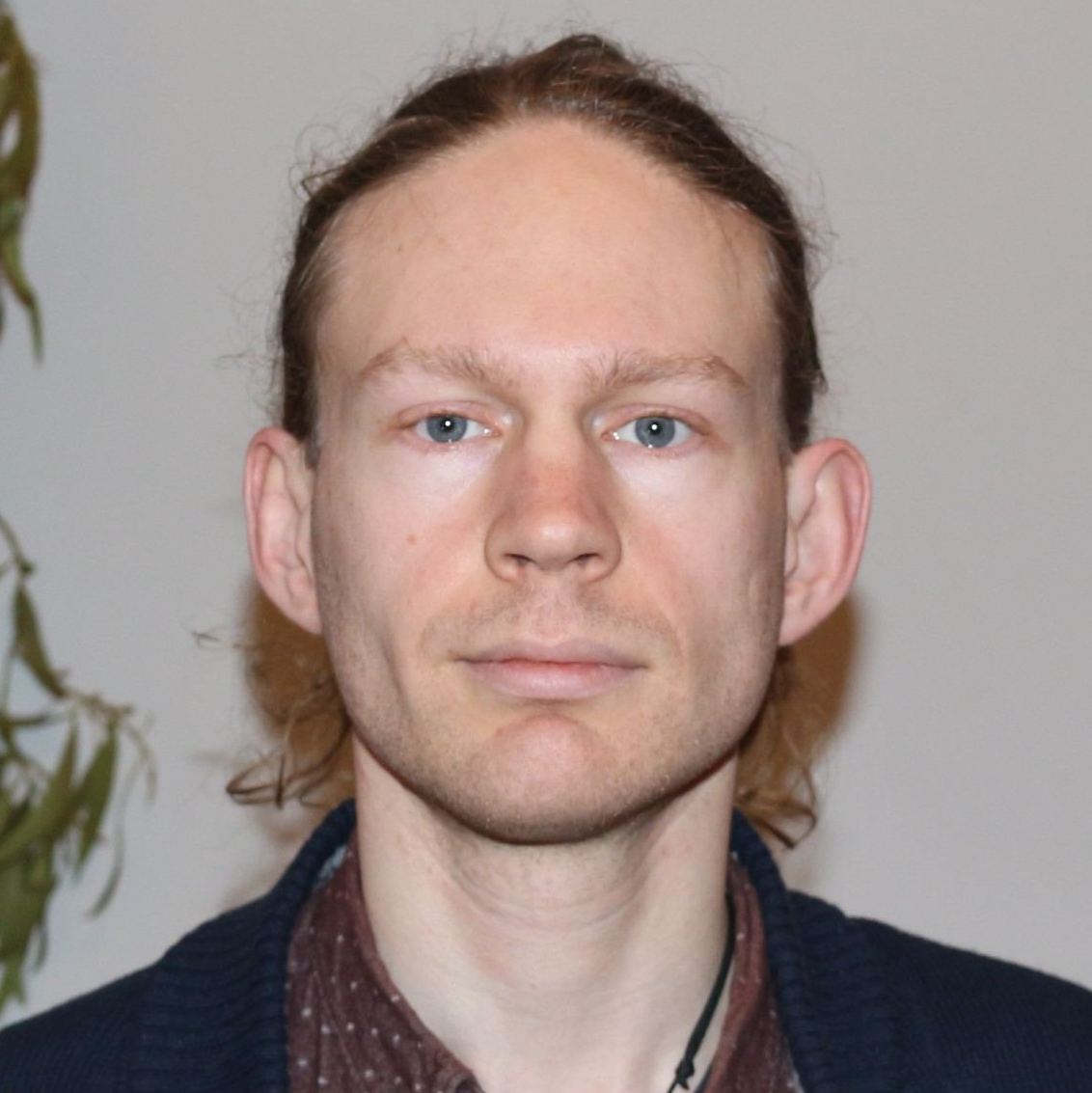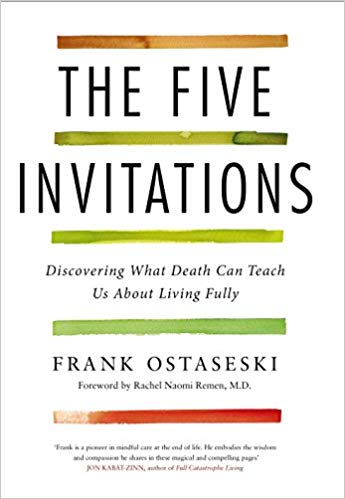Frank Ostaseski founded the Zen Hospice Project and has spent his life working with people on their deathbeds.
In this book he distils the things he’s learnt from the dying into five principles:
1. Don't Wait
Embracing the truth that all things inevitable must end encourages us not to wait in order to begin living each moment in a manner that is deeply engaged.
- We stop wasting out lives on meaningless activities.
- We learn to not hold our opinions, our desires and even our own identities so tightly.
- Instead of pinning our hopes on a better future, we focus on the present and being grateful for what we have in front of us now.
- We say "I love you" more often because we realise the importance of human connection.
At first, the news of impermanence generates a great deal of anxiety.
In response we try to make things solid and secure.
We try to arrange the conditions of our lives, to manipulate the circumstances so that we can be happy.
Attaching our happiness to a specific outcome causes us all sorts of suffering.
To manage that distress, we attempt to control everything that is happening around us.
2. Welcome Everything, Push Away Nothing
The word welcome confronts us; it asks us to temporarily suspend our usual rush to judgement and to simply be open to what is happening.
We love to have our preferences met.
In fact, most of use have been taught that getting what we want and avoiding what we don't is the way to assure our happiness.
Inevitably their are unexpected experiences in our lives.
- An unanticipated move
- A job loss
- A family member's illness.
We attempt to evict these difficult parts of our lives as if they were unwanted houseguests.
Does he mean that we should let life walk all over us? Not at all.
When we are open and receptive we have options.
We are free to discover, to investigate and to learn how to respond skill-fully to anything we encounter.
Gradually we discover that our well-being is not solely dependent on what's happening in our external reality; it comes from within.
To welcome everything is an act of love.
Often you cannot change the situation. If you rally against it, you will only cause yourself more suffering.
What is an an alternative way to handle life's inevitable dukkha?
- Realise that pain and suffering are two intimately related yet different experiences.
- Pain is inevitable; suffering is optional.
If you are alive, you will experience pain.
Suffering generally occurs as a chain reaction: stimulus-thought-reaction.
Suffering is about perception and interpretation.
Let's say you get fired from your job.
The suffering is greatly exaggerated if you refuse to accept was happened.
We tend to say things like "This isn't fair." This only causes us to suffer more.
Acceptance does not require agreement. We may still want to work to change our life circumstances. But you can't make a change until you first accept the truth of what is right in front of you, eyes wide open.
Pain + Resistance = Suffering
As people come closer to death, I have found that only two questions really matter to them: "Am I loved?" and "Did I love well?".
3. Bring Your Whole Self to the Experience
We all like to look good. We long to be seen as capable, strong, intelligent etc.
We project a positive self-image.
Few of us want to be known for our helplessness, fear, anger or ignorance.
Often he found that an "undesirable" aspect of himself, one about which he previously had felt ashamed and kept tucked away, to be the very quality that allowed him to meet another person's suffering with compassion instead of fear or pity.
Wholeness does not mean perfection. It means no part left out.
Don't be a role; Be a soul.
We are not our roles and we are not our conditions.
You may have cancer or bipolar disorder, but you are not your disease.
You may be born into wealth or poverty, but you are not rich or poor.
You may find yourself happy or sad, old or young, in supportive conditions or in conditions of despair.
We are first and foremost human beings, with all of that complexity, fragility and wonder that life encompasses.
No matter how you try, you can't please your inner critic.
In the critic's eyes nothing you do is good enough.
The pursuit of perfection is learned early on and, for most of us, becomes a lifelong addiction.
The three human coping strategies for dealing with anxiety:
- Some of us move away by withdrawing, hiding, collapsing. We avoid conflict.
- Some of us move toward by seeking to please and accomodate, negotiate, persuade and explain.
- Some of move against by trying to gain power over others. We rebel or fight back.
But there is a problem with all of these strategies.
They still give the inner critic all of the power.
Defending ourselves against the inner critic is tough work. It takes practice.
If you want others to be happy, practice compassion. If you want to be happy, practice compassion. - Dailai Lama.
This person has a body, heart, and mind, just like me.
This person worries and gets frightened, just like me.
This person is trying their best to navigate life, just like me.
This person is a fellow human being, just like me.
May this person have the strength and support to face the difficulties in life.
May this person be free from suffering and its causes.
May this person be peaceful and happy.
May this person be loved.
4. Find a place of Rest in the Middle of Things
We can find a place of rest within us, without having to alter the conditions of our lives.
It is experienced when we bring our full attention to us. We need only turn toward it.
We confuse rest with non-productivity and laxness.
Multitasking is a myth that only serves to seize our attention and exhaust us.
Rest is found when we are present instead of letting our minds wander aimlessly through the hallways of fear, worry and anxiousness.
The metaphor of the ocean to describe the layers of the mind.
On the surface there is generally a fair amount of turbulence in our thoughts.
The tree poisons that lurk beneath the surface of our awareness.
- The demand (craving)
- The defense (aversion)
- The distraction (ignorance)
The antidote to all three poisons is mindfulness.
Mind the Gap
Want to know some of what death has to teach?
Begin to look at endings!
How do you meet endings in life?
"Everything comes to an end. It is so sad." -> It's true all things change. 'Sad' is the story you tell yourself.
Courageous Presence
The three types of courage needed to live fully, face death directly, and discover true freedom.
- The courage of the warrior.
A healthy warrior courage is motivated by honour, loyalty to comrades, service or commitment.
- The courage of a strong heart. Asks us to be undefended.
- The courage of Vulnerability.
5. Cultivate Don't Know Mind
In the beginner's mind there are many possibilities. But in the expert's there are few.
When memories are taken as truth, they go unquestioned. That frequently leads to fixed assumptions, all-or-nothing thinking, which may have unintended consequences on future decisions.
One characteristic of all humans that death illuminates is our desire for security in an ever-changing world. We believe who we are and how things are for us should remain fixed and permanent. We want to know what the future will bring. Most of all, we don’t want who we think we are to die.
When we take ourselves to be separate, solid forms, death becomes the enemy. Death is the emptiness that threatens our forms.
Emptiness need not scare us because it doesn’t mean complete nothingness, that we don’t exist or that we don’t have any value or that we are not each unique, beautiful individuals. We are all of that.
Suppose we became more intimate with form and emptiness in everyday life?
The sacred is not separate or different from all things; it is hidden in all things. And dying is an opportunity to uncover what is hidden.
The sacred has always existed. Everything is saturated with it. It is the nature of reality. Yet most of the time, we walk around in the sacred world with ordinary vision. It is as though we are colour-blind, unable to clearly distinguish the different hues of the spectrum; we don’t always perceive or distinguish the sacred.
Both birth and death can serve as portals to the sacred. Or not.
In the process of dying, a gradual awakening occurs. Almost imperceptibly, we begin a long, slow process of letting go, relinquishing what we know we can no longer hold on to or control.

